

The Diploma in Teaching English to Speakers of Other Languages (DipTESOL) is an internationally respected, widely available qualification for experienced teachers of ESOL/EFL. It is equivalent to a Cambridge DELTA and is an internationally respected, prestigious qualification for experienced teachers of ESOL/EFL. In contrast to the Cambridge DELTA, the Trinity DipTESOL provides more of a focus on phonology and the option to base your projects on your own particular context. The DipTESOL is accepted by the British Council as a full English Language Teaching (or ‘TEFL’) qualification for teachers in its accredited teaching organizations in the UK and in its own teaching operations overseas. Having the DipTESOL enables holders to have roles such as examiners, teacher educators, and center managers/directors of studies.
This program will enhance your teaching skills, opening up opportunities for roles like examiner, coursebook writer, teacher trainer, or school manager. The adaptable structure of the course allows for seamless integration into your full-time schedule, making it convenient for individuals with busy lives.
Choosing the DipTESOL program with our teacher training center in Istanbul provides a unique and advantageous experience for several reasons: Experienced Tutors: Our center boasts a team of highly experienced tutors who bring a wealth of knowledge and expertise to the DipTESOL program. They are dedicated to providing comprehensive guidance and support, ensuring that you receive top-notch training and mentorship. High-Tech Facilities: Our center is equipped with state-of-the-art facilities to enhance your learning experience. From modern classrooms to exclusive LMS, you will have access to tools that facilitate effective and engaging learning throughout the DipTESOL program. Global Recognition: The DipTESOL qualification obtained through our center holds international acclaim, impressing employers worldwide. This recognition not only adds value to your professional profile but also opens doors to various career opportunities in the field of English language teaching. Practical Training: Our program emphasizes practical training, allowing you to apply theoretical knowledge in real classroom scenarios. This hands-on approach ensures that you are well-prepared for the challenges and demands of the teaching profession. Competitive Fee: We offer almost the lowest fee for the course and provide the opportunity to pay in installments. Flexible schedule: Recognizing the commitments of working professionals, our center offers a flexible schedule for the DipTESOL program. This allows individuals with busy lifestyles to seamlessly integrate the course into their existing professional and personal responsibilities.
Each unit allows participants to focus on English language teaching in specific contexts — for example, English for specific or academic purposes, for young learners, for business English, or teaching within CLIL (content and language integrated learning) settings: Unit 1: Language, teaching and learning Unit 2: The teacher as a developmental, reflective practitioner Unit 3: Phonological theory in classroom practice Unit 4: Learner analysis, preparation, delivery and self-evaluation in teaching The DipTESOL is regulated in England by Ofqual and registered at Level 7 on the Ofqual Regulated Qualifications Framework, the same level as master’s degrees and many other post-graduate qualifications.
Through its validation and annual inspection process, Trinity College London ensures that all DipTESOL courses follow the same mandatory components: Language: candidates must show understanding of the language systems and language-related issues as commonly taught in beginner to advanced syllabuses. Learning and Teaching: candidates must show an understanding of the current principles and practices of language learning and teaching and show an ability to demonstrate these in the classroom. Professional Development: candidates must demonstrate knowledge of the principles and procedures facilitating personal and professional development. Candidates are examined according to the following four units. Some components are externally assessed by Trinity's panel of examiners, others are internally assessed by the course provider and externally moderated by Trinity. Unit 1: Three-hour Written Paper. This has three sections – a short answer section on language topics and two essay sections on 'learning and teaching' and 'professional development'. It is externally assessed and there are three set examination dates per year. Please download the DipTESOL Unit 1 sample examination paper to get an idea of what to Unit 2: Coursework Portfolio. This is a compilation of three assignments, firmly rooted in classroom practice. Section one is based around a self-designed classroom observation instrument, section two is a developmental record of the candidate's own teaching and section three is an independent research project. The portfolio is internally assessed and externally moderated. expect. Unit 3: the Interview. This is an externally assessed 30-minute interview designed to give the candidate the opportunity to describe, illustrate and evaluate their understanding and application of phonological theory in the classroom and includes a prepared talk and a phonemic transcription exercise. Unit 4: Classroom Teaching. Candidates complete four hours of internally assessed teaching practice and one hour that is externally assessed. In addition, candidates complete a self-reflection teaching practice journal. Units 2, 3 and 4 are usually taken together in the first instance and candidates have up to three years to complete any failed units or parts of units. The syllabus places a strong emphasis on the application of theory in the classroom and also on teachers reflecting on and evaluating their own practice. For more information visit here.
The DipTESOL (Licentiate of Trinity College London Diploma in Teaching English to Speakers of Other Languages) is an internationally respected, widely available qualification for teachers of ESOL/EFL with at least two years' full-time teaching experience. Here are two of the reasons teachers commonly give for taking this qualification: They are planning to work in a position or organization that requires a diploma-level qualification. Examples include academic management, teacher training or work within the Higher Education sector. Having completed an initial certificate course and two years of ESOL teaching, they now feel they need to develop their skills and knowledge both for their own sake and so that they can support and guide less experienced colleagues.
Standard model: Payment before the course 1980 GBP Installment model 2100 GBP Deposit March 1st 500 GBP 1st installment May 1st 550 GBP 2nd installment July 1st 550 GBP 3rd installment September 1st 500 GBP
THE TEAM
Jaber Kamali Jaber Kamali, Ph.D., is a lecturer at Ibn Haldun University, Istanbul, Turkey. Having worked in the field of ELT since 2004 he has been a TESOL/TEFL lead trainer and course director since 2017 for different TESOL/TEFL providers. He has been an IHU teacher training center coordinator and Trinity CertTESOL course director since 2021. Having published several articles in leading ELT journals, he is among the top-cited authors of Wiley publication in 2020-21. His recent publications have appeared in the Journal of Multilingual and Multicultural Development, Language Teaching Research Quarterly, and Power and Education. His fields of interest include teacher education, teacher identity, and multicultural education. Mahmoud Dahman Mahmoud Dahman is an in-house trainer, CPD coordinator, and EFL instructor at Ibn Haldun University. He's a Cambridge CELTA and Trinity CertTESOL trainer. He has received his Bachelor's Degree in English Language and Literature and a Master’s Degree in Linguistics from the University of Aleppo. Dr. Jason Anderson is a multiple-award-winning teacher educator, author, educational consultant, and researcher, working in both language teaching and mainstream education. He has supported teachers in over 30 countries worldwide, pre-service and in-service, for national ministries of education and organizations including UNICEF, the British Council, and the University of Warwick. He has published research on aspects of language teaching, multilingualism, teacher reflection, teacher expertise, and teacher education. His interests include teaching methodology, multilingualism, and the contextual challenges of primary and secondary teachers working in low- and middle-income contexts, where he has spent much of his career as a teacher educator. Mark Hancock is a teacher, trainer, and author of many ELT titles including Pronunciation Games and English Pronunciation in Use Intermediate (both CUP). His self-published collection PronPack 1-4 received the 2018ELTons award for innovation in teacher resources. His latest books are PronPack: Connected Speech for Listeners (pronpack.com) and Mark Hancock’s 50 Tips for Teaching Pronunciation (CUP). Mark co-founded the teaching website www.hancockmcdonald.com, and posts pronunciation materials on https://www.instagram.com/markhancockpronunciation/
Lindsay Warwick is a teacher trainer and materials writer with extensive of experience in teaching young adults and adults, as well as training new and in-service teachers around the world. She is an MA tutor at the Norwich Institute of Language Education and co-author of several coursebooks including Pearson's Roadmap, Macmillan's Skillful Reading & Writing 4, and Oxford University Press's Milestones in English. Scott Thornbury is an internationally recognized academic and teacher trainer in the field of English Language Teaching (ELT). Along with Luke Meddings, Thornbury is credited with developing the Dogme language teaching approach, which emphasizes meaningful interaction and emergent language over prepared materials and following an explicit syllabus. Thornbury has written over a dozen books on ELT methodology. Two of these, 'Natural Grammar' and 'Teaching Unplugged', have won the British Council's "ELTon" Award for Innovation, the top award in the industry (in 2004 and 2010, respectively). Thornbury is also the series editor for the Cambridge Handbooks for Language Teachers, and the author of many academic papers on language teaching. His 'A-Z of ELT' blog is one of the most influential and well-visited blogs in the field of ELT.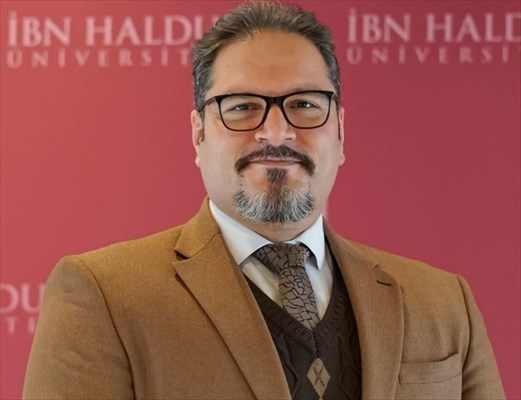
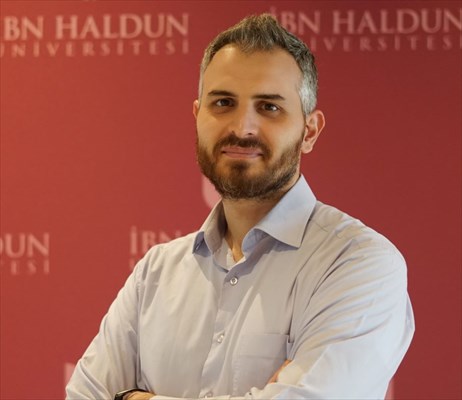
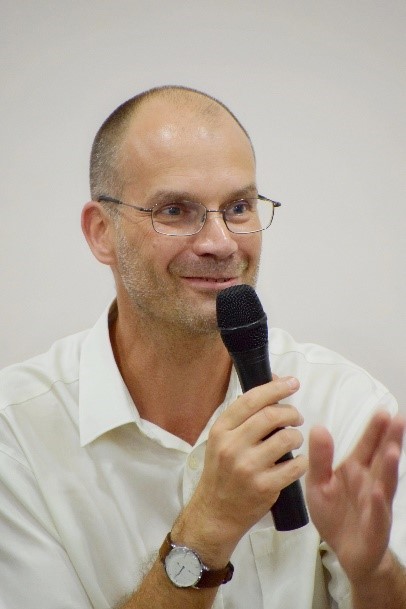 Jason Anderson
Jason Anderson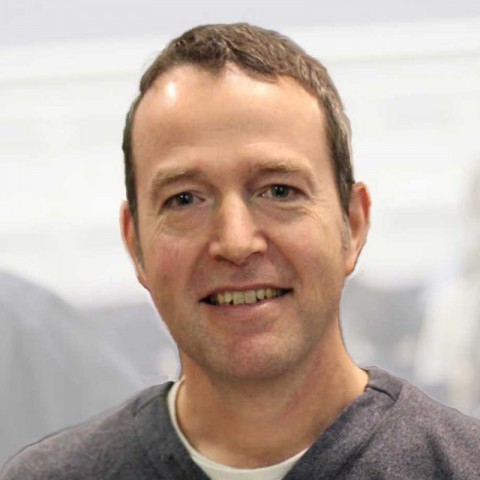 Mark Hancock
Mark Hancock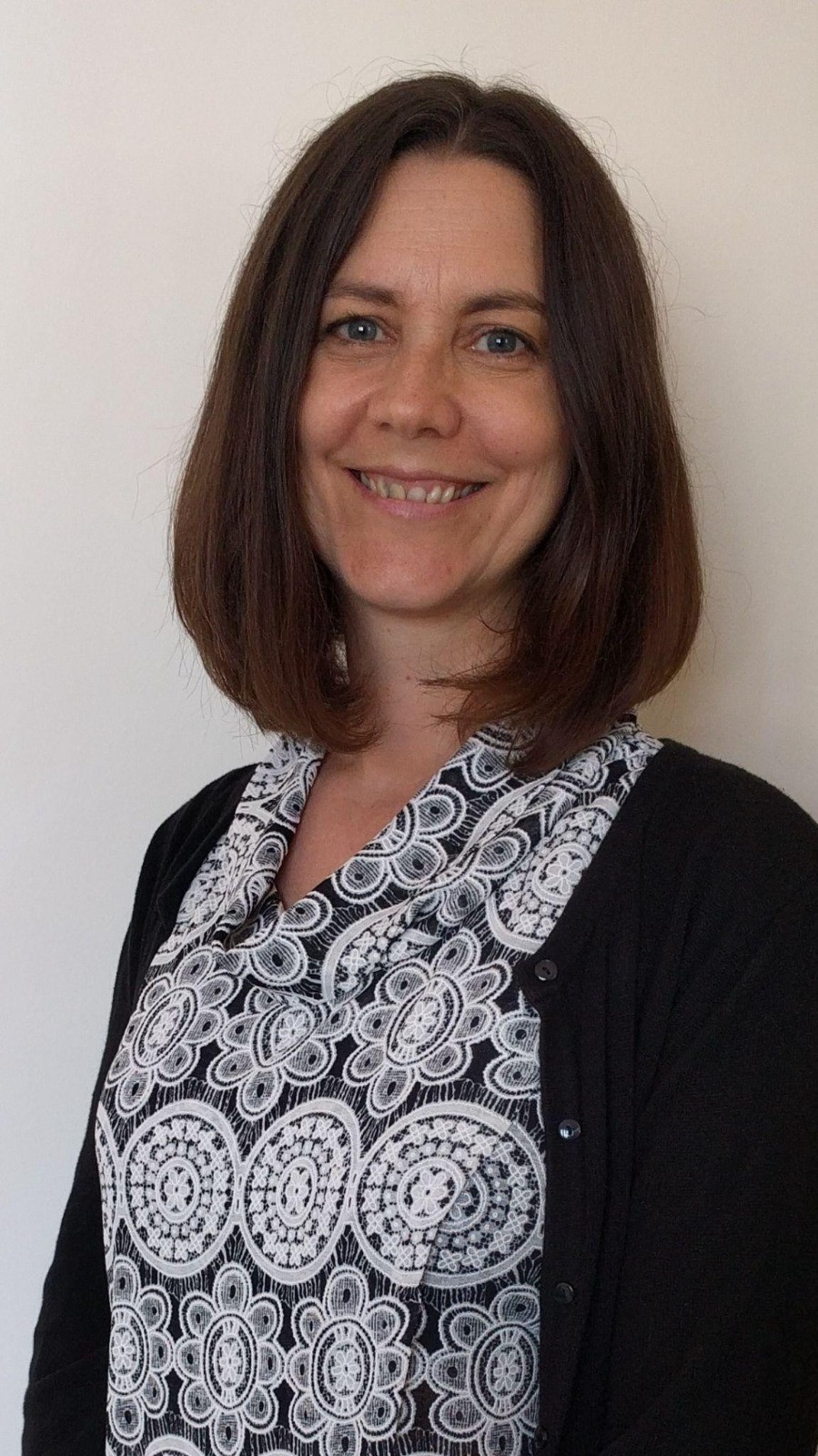 Lindsay Warwick
Lindsay Warwick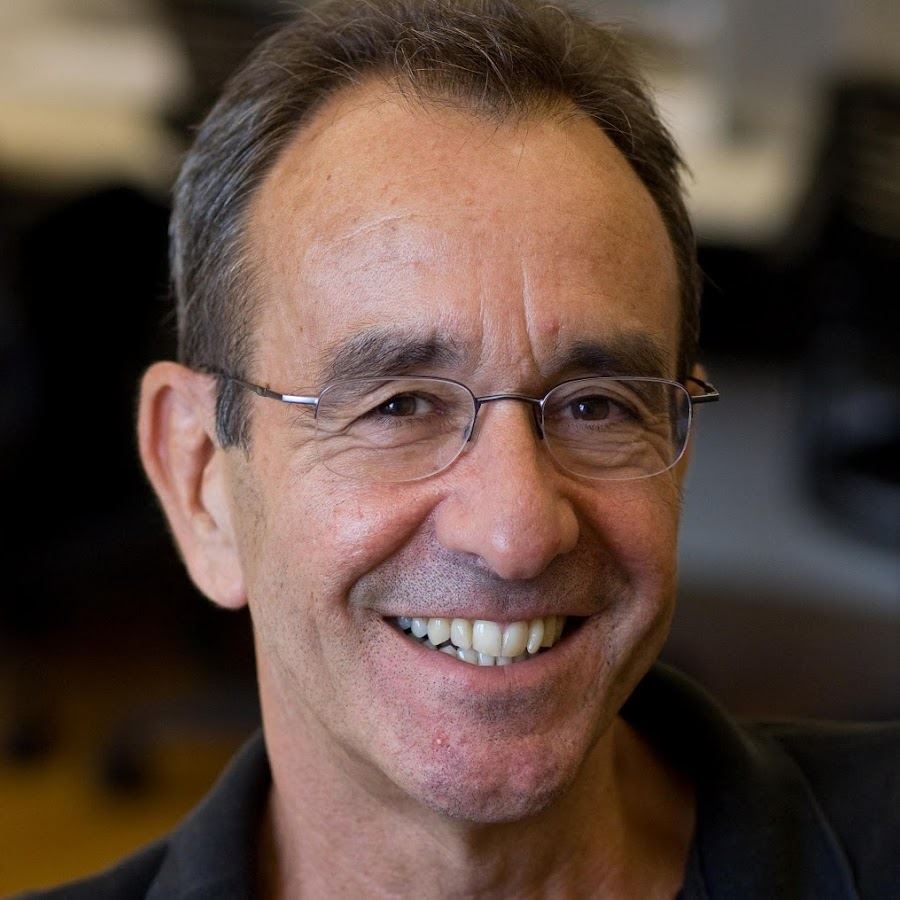 Scott Thornbury
Scott Thornbury
FAQs
Wherever you are in the world, you can gain the Trinity DipTESOL qualification.
Choose from two ways to take the Trinity DipTESOL course:
Blended Option
Study phase: Online |
Fully Online Option
Study phase: Online |
|
Study Module |
In both options, the online study module lasting six months is conducted through Moodle, complemented by weekly live lessons conducted on Zoom.
Upon the completion of the study phase, you are qualified to enroll in the Trinity assessments for units 1–4. The assessments can be undertaken in any sequence, as indicated in the "Assessment Dates" section below. |
|
|
Unit 1 The Written Paper |
Regardless of which option you choose, this 3-hour written exam is the only unit which must be completed face-to-face.
You can sit the exam at any institution, as long as they can provide a quiet room and an invigilator for the duration of the exam. Many candidates choose to take the unit 1 exam at the school where they are currently working. |
|
|
Unit 2 The Portfolio |
In both options, you will receive tutor supervision online via Moodle. When you finish your projects, they are submitted via email. |
|
|
Unit 3 Phonology Interview |
In both options, the 30-minute phonology interview is held online via Zoom. |
|
|
Unit 4 Teaching Practice |
If you would like to complete your teaching practice face-to-face, you have a couple of options:
|
If you would like to complete your teaching practice online, you have a couple of options:
|
The DipTESOL is an advanced level teaching qualification suitable for ESOL/EFL teachers who have been teaching for at least two academic years at the time of interview. In addition, you will need a degree or equivalent qualification. An initial TEFL qualification such as the Trinity CertTESOL is highly desirable but not essential.
The DipTESOL syllabus covers:
- language topics such as grammar, discourse, phonology and semantics
- learning and teaching issues such as the historical development of TESOL approaches or aspects of classroom practice and course design
- professional development issues such as aspects of educational management or teacher training
You will need to engage with the theories underpinning ESOL practice but everything you study will be related to your practical needs as a teacher. Trinity also places strong emphasis on self-reflection and personal development.
|
Standard model: Payment before the course |
1980 GBP |
|
Installment model |
2100 GBP |
|
|
Deposit |
March 1st |
500 GBP |
|
1st installment |
May 1st |
550 GBP |
|
2nd installment |
July 1st |
550 GBP |
|
3rd installment |
September 1st |
500 GBP |
The DipTESOL is examined in four units: a three-hour written paper, a portfolio assignment, an oral (phonology) interview and teaching practice. Assessment is a mixture of the external (by Trinity's own panel of examiners) and internal (by the course provider). In addition, all internally assessed work is moderated by our panel of examiners. If you fail any unit you only need to retake that part and you have three years to retake from the date of the first examination you took.
DipTESOL Certificates are issued to course providers when a candidate successfully passes all four units of the DipTESOL. It takes between 4-6 weeks for certificates to be issued after final grades for all four units have been confirmed by Trinity’s external examiners.
For the Unit 1 written exam, it takes 8-9 weeks from the date of the exam for results to be confirmed with course providers.
For Units 2, 3 and 4, it takes 4-6 weeks from a course provider’s submission of work for results to be confirmed with them.